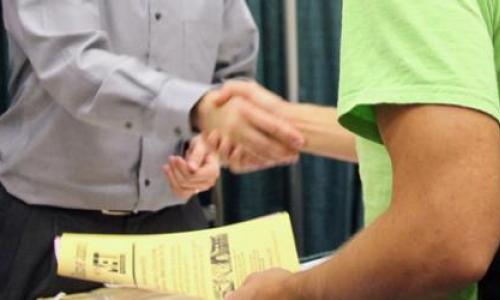
A few months ago if you asked me what an informational interview was, I would have given you a blank and questioning look, but after going on informational interviews about once a week for the past couple of months I think I've finally got a grasp of what they are. Informational interviews are when you meet with an industry professional to learn more about what they do, what the industry is about, and anything related to their career. It is not a chance to ask for a job, it is, however, a chance to build your network, which can inherently get you a job in the future.
Why Informational Interviews
Personally I've found that informational interviews are a great way to figure out what you want to do career-wise. Why not ask a professional about their experience to see if it piques your interest and if it's something you can consider yourself doing? It's also a great way to find out how that professional got there and ask them advice on how you can do the same. It's a great chance to just absorb and hear stories from great people.
Why Would a Professional Meet with You?
There are several reasons that a professional will meet with you. A practical reason is that they might be able to hire you in the future or it might help them to know future industry professionals. Another reason is because it’s always nice to feel like you’re a good person and chances are they had professionals do it for them. It’s good karma!
How Do you Get an Informational Interview?
You start off by seeing who you want to talk to in the industry, and be sure you have a reason to talk to them. The most effective way to set up an informational interview is to know someone who knows that person. For instance, if your past employer could introduce you to someone in the field you are interested in sending out an email asking if they would like to meet you, which makes the meeting a little more genuine. The other alternative is to contact the professional directly, but it’s best if you have something in common. For instance, if you and the professional attended the same conference, you can mention that. Once you go on your first interview you can ask that person to refer you to other people in the industry, and it's an ongoing process.
After the professional agrees to meet with you, you both need to agree on a time. Be sure to be as flexible as possible- say yes to any opportunity even if they are 2 hours away. It’s incredibly valuable that they are willing to meet with you, and the least you can do is be flexible to meet with them.
At the Interview
Informational interviews are almost like a first date and it’s important to make a good first impression. I’ve narrowed it down to a few "must-do" points.
-
Be prepared: Do research on the professional, their industry, and have questions ready to go. For a more detailed description of how to prepare, see Natalie’s article on "Preparing for Informational Interviews".
-
Be Early: Much like a job interview, it’s important to show up about 10-15 minutes early. In the case of the informational interview, it’s nice to get there early to save a spot for both of you.
-
Buy Coffee: The professional you are speaking to is being kind enough to take the time to speak to you, so please offer to buy them coffee!
-
Say Thank You: Be sure to say thank you! Send a follow-up email and a thank you card to be sure the professional feel appreciated!
Informational interviews are tricky, but once you get the hang of it you’ll be well on your way to learning about your industry and building your network.
Beyond the Blog
- Check out Natalie's experiences in her co-op work terms with TFCSE and Allied Vision.















